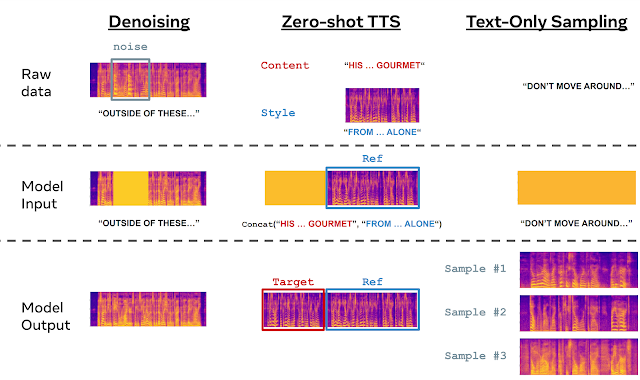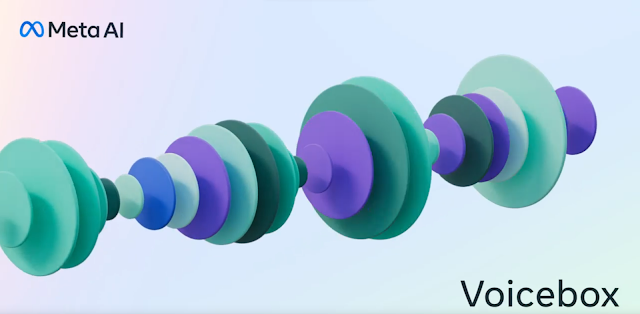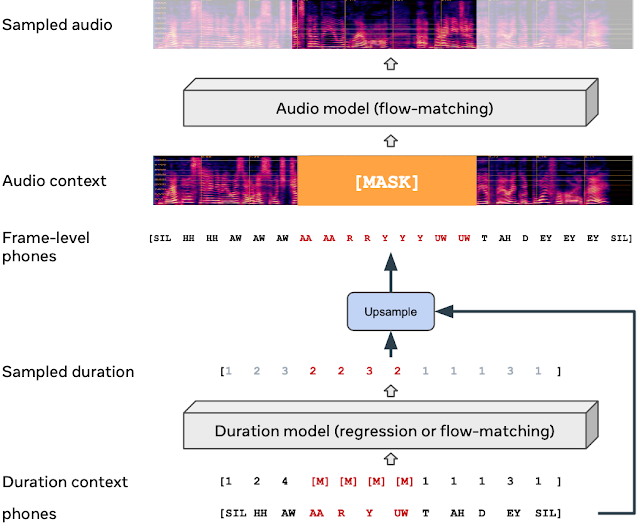Speech is one of the most natural and expressive ways of communication for humans. However, creating and editing speech content can be challenging and time-consuming, especially when dealing with different languages, styles, and noises. What if there was a way to generate high-quality speech from scratch or modify existing speech samples with just a few words of instruction?
That's the vision behind Voicebox, a generative AI model developed by Meta AI researchers. Voicebox is the first model that can generalize to speech-generation tasks it was not specifically trained to accomplish with state-of-the-art performance. It can synthesize speech across six languages (English, French, Spanish, German, Polish and Portuguese), as well as perform noise removal, content editing, style conversion, and diverse sample generation.
Voicebox is based on a novel method called Flow Matching, which enables the model to learn from raw audio and an accompanying transcription without requiring any additional labels or annotations. Unlike previous models that rely on autoregressive methods, Voicebox can modify any part of a given sample, not just the end of an audio clip. This makes it more versatile and efficient for speech generation.

Some of the exciting applications of Voicebox include:
In-context text-to-speech synthesis: Voicebox can match the audio style of a given sample and use it for text-to-speech generation. For example, you can give Voicebox a two-second clip of your voice and a passage of text, and it will produce a reading of the text in your voice.
Speech editing and noise reduction: Voicebox can recreate a portion of speech that's interrupted by noise or replace misspoken words without having to re-record an entire speech. For example, you can identify a segment of a speech that's interrupted by a dog barking, crop it, and instruct Voicebox to re-generate that segment - like an eraser for audio editing.
Cross-lingual style transfer: Voicebox can produce speech in any of the six languages it supports, even when the sample speech and the text are in different languages. This capability could be used in the future to help people communicate in a natural, authentic way even if they don't speak the same languages.
Diverse speech sampling: Voicebox can generate speech that is more representative of how people talk in the real world and in different languages. This could help create more inclusive and diverse voice content for various domains.
Voicebox represents a breakthrough in generative AI for speech, but it also comes with potential risks of misuse. That's why Meta is not making the model or code publicly available at this time. Meta is also developing a classifier that can distinguish between authentic speech and audio generated with Voicebox. As per Meta, it is important to balance openness with responsibility when sharing our research with the AI community.
Voicebox is a significant advancement in generative AI research, unlocking possibilities in the audio space and paving the way for further innovation. With its unparalleled capabilities in audio editing, speech synthesis, and cross-lingual communication, Voicebox promises to revolutionize the way we interact with audio content. The future holds endless opportunities for leveraging this technology to enhance virtual experiences, accessibility, and creativity in audio production. Exciting times lie ahead as researchers and developers build upon the foundation laid by Voicebox.













No comments: